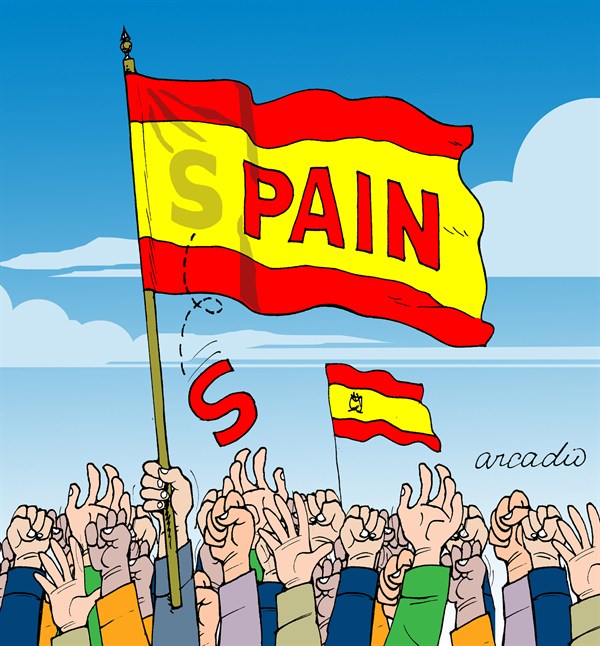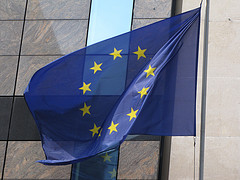
Dambisa Moyo’s Resource War Argument is Flawed
Bestselling author, financial economist (and Oxford alumnus) Dambisa Moyo argues in her new book that the rise of China is generating unanticipated consequences for the international system and that no one — bar the Chinese Communist Party — is actively thinking about how to handle the long term fallout of these seismic shifts. I debated some of these ideas with her on Radio 4’s Today Programme a couple of days ago. One of Moyo’s controversial arguments is that China’s ascendency doesn’t just put tremendous pressure on commodity markets, but is likely to represent such a big demand shock that supply of key resources simply can’t keep up. The consequence, for Moyo, is then that as countries — and the planet …
From Austerity to Growth – The politics of painfully slow economic recoveries
Much to Angela Merkel’s chagrin, international political momentum seems to have swung rather decidedly from ‘austerity’ to ‘growth’. The transformation had been underway for some time – playing out in debates across the economics blogosphere – but the elections in France and Greece clearly accelerated this evolution. The recent G8 summit communiqué – which leads with the phrase “Our imperative is to promote growth and jobs” – epitomizes the shift. In terms of our collective understanding of economics and how to fight recessions, I think there’s actually a lot less here than meets the eye, and indeed a lot of rather meaningless talk. To begin with, as Tyler Cowen has pointed out, ‘austerity’ means many different things to different people, and …

The European Dilemma: the Monetary Union and the Road Ahead
Countries in the periphery of the Eurozone face one of the toughest dilemmas in recent history. Each of them with their particularities, Greece, Portugal, Italy and Spain all share the challenge of dealing with the consequences of sustained large current account deficits, the accumulation of public and private debt and a protracted banking crisis. On top of these troubles, they lack an independent monetary policy, possess minimal fiscal maneuverability due to already unsustainable levels of public debt, and have to work under a marked sense of urgency due to painful and untenable unemployment rates. Their dilemma is over whether to implement further structural reform in the frame of the Eurozone, knowing that these measures could take longer to take effect …
France and the New Balance of Power in a Crisis-Stricken Europe
I’ve been neglecting my blogging duties of late as I’ve been preoccupied studying for an exam on International Relations theory and history. With the exam safely behind me I’m back to blogging, but still have academic IR debates on the mind, so today I want to write about what the history of early 20th century European relations can tell us about the continent’s current political economy. To grossly oversimplify, back in the pre-WWI days Europe was controlled by a number of Great Powers of roughly equal strength, who were in continual competition with one another to run the world. They typically pursued their goals by forming loose and shifting alliances; whenever any one state seemed to be getting too strong, …

Boiling over – Spain’s economy needs bold leadership
The scope and scale of the Eurozone crisis has led many to forget that different countries had very different economies when the crisis erupted. In an attempt to arrive at general conclusions about the malaise affecting the economies of the EU we have failed to understand the particularities of each case. The most common of these generalisations is that high levels of public debt in the EU periphery are the overall cause of the Union’s problems. Current debates about the economic situation in Spain, for example, are centred on the country’s need to reduce its budget deficit to 5.3% of GDP, as agreed this year with European partners in Brussels. Just recently, the newly elected Spanish conservative government succeeded in …

The beginning of the debt crisis: Europe and beyond
Government debt is a burgeoning issue, but the solutions are thus far a damp squib. Despite claims otherwise, the debt crisis is not one that has been solved – not even partially. Recently, European leaders saluted an agreement on settling part of Greece’s outstanding debt– largely by canceling it. Yet, European governments have merely found a way to roll debt over, with debt levels scheduled to increase further, at least until 2016. Interest rates on government bonds should increase correspondingly – hence the rating agencies’ downgrades. Unless we encounter solid growth throughout Europe, we are heading toward further turmoil. Far from attempting to be pessimistic, I solely seek to reflect on the reality of the situation and what it may entail for the future. What leaders haven’t …
Prospects for Chinese Economic Reform: It’s all down to politics
Last week the World Bank released a massive 400-page report, China 2030, outlining a vision for reforming the country’s economy over the next two decades to ensure continued success. As is typical in these kinds of reports, the main findings are completely reasonable if not exactly ground-breaking: China needs to increase the share of consumption in its economy, lessen the grip of state-owned enterprises, move toward letting the market more accurately price energy and capital, deal more seriously with environmental degradation, and just generally become a more market-oriented economy. All of which makes perfect sense, and indeed very sensible people have been suggesting more or less this same package of reforms for several years now. But this is all easier …

Low Key EU Summit: Tired Europe mired in crisis and recession or rebounding?
As 25 of the EU’s 27 member states signed the fiscal treaty designed to put a line under the euro crisis on a grey and misty Brussels morning, the mood at the summit was low key and low energy (the UK and the Czech Republic the two non-signatories). Politicians and officials alike did their best to spin that the crisis was past. French President Nicolas Sarkozy at his press conference, insisted ‘ we are turning the page on the financial crisis’ and that Europe had shown how fast it can move, bringing the treaty in just three months after the idea was launched at the December summit 3 months before. But Sarkozy himself looked tired and pale, rather than his …









